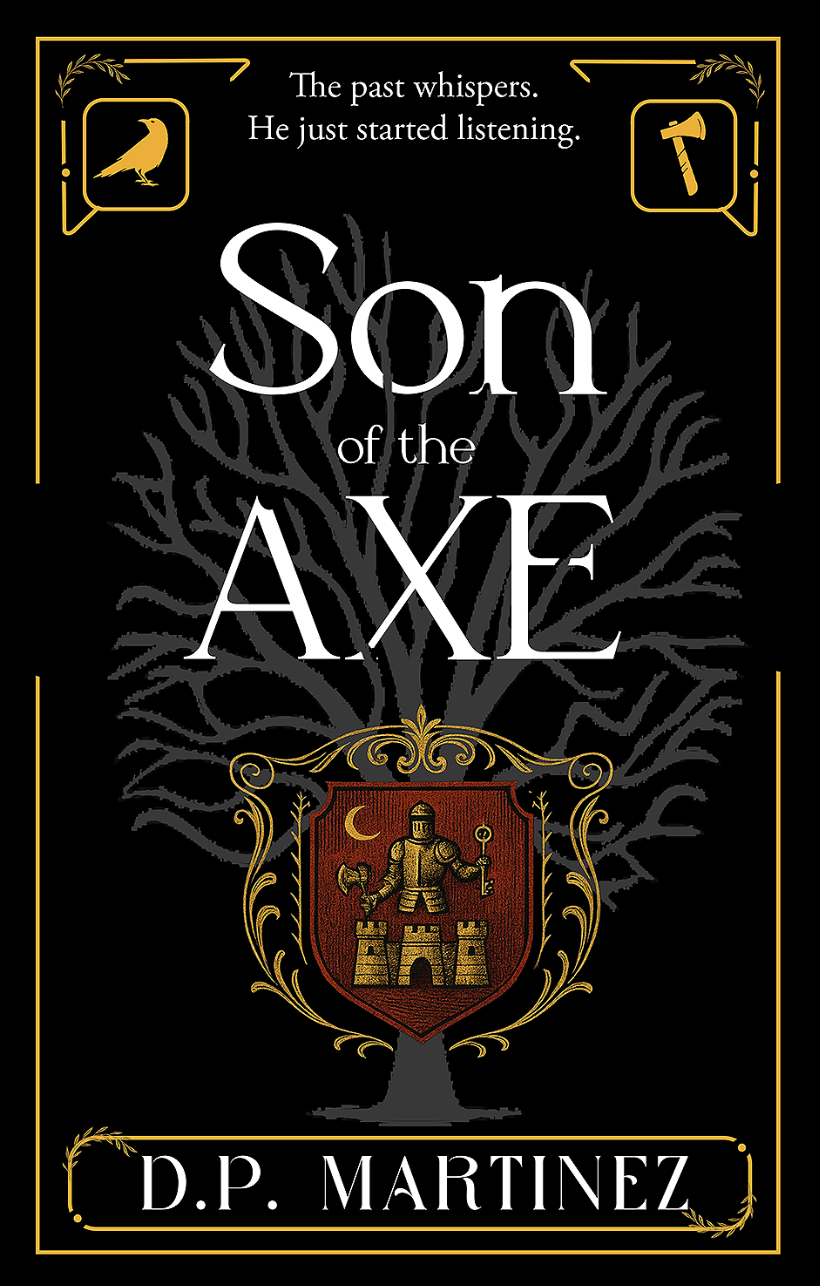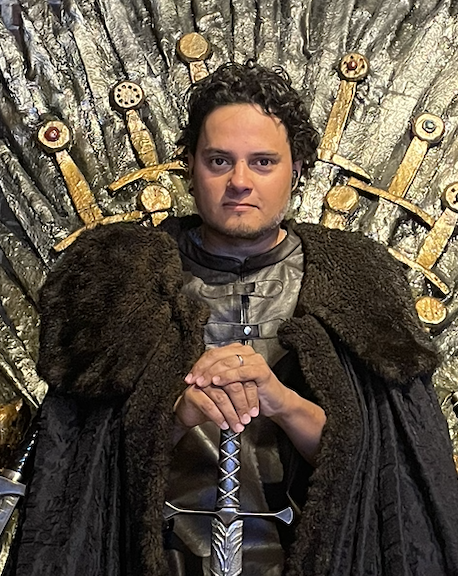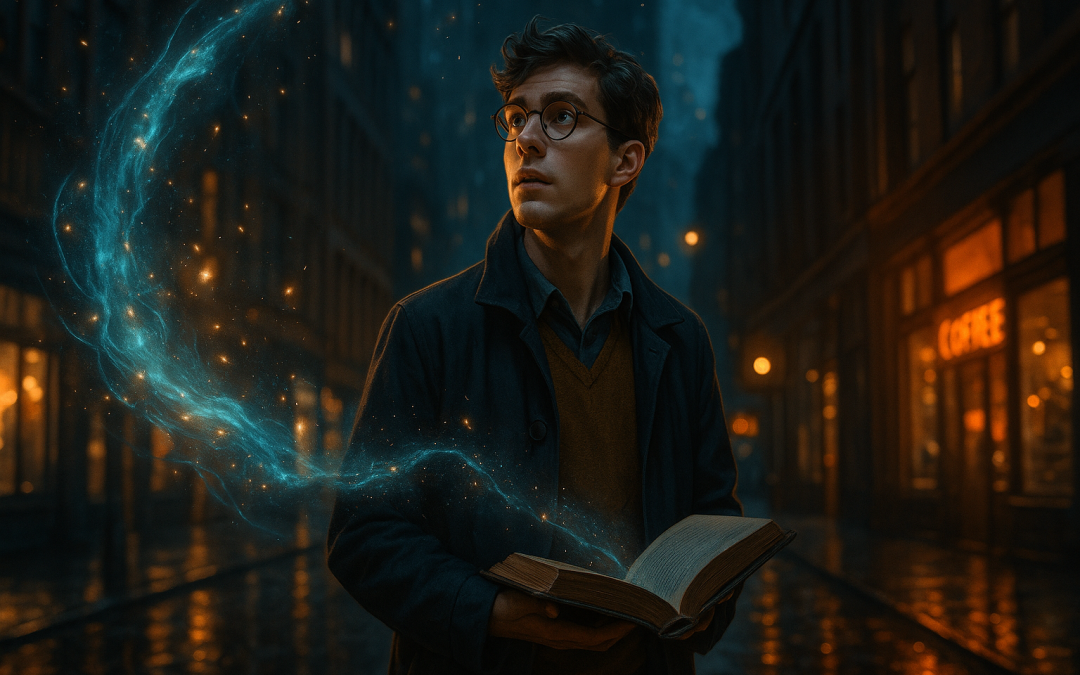What if there was a secret society of wizards operating beneath your city? Or if ancient gods rode the same trains you do? That’s the kind of question that lies at the heart of contemporary fantasy fiction—a genre that brings the magic of fantasy into the here and now.
Unlike high fantasy, with its distant kingdoms and medieval quests, contemporary fantasy unfolds in settings we know: present-day cities, suburbs, coffee shops, schools, and sometimes even your own street. But beneath the surface, the extraordinary brews—hidden worlds, supernatural forces, mythical creatures, and a healthy dose of wonder. These aren’t just fantasy stories; they’re our stories, layered with enchantment.
In this guide, we’ll break down what contemporary fantasy is, how it differs from related genres, and why it resonates with modern readers. We’ll explore the best contemporary fantasy books and series, highlight key authors, and look at how the genre is evolving—becoming more diverse, more experimental, and more reflective of the world we live in.
What is Contemporary Fantasy?
Contemporary fantasy is a subgenre of fantasy fiction set in the modern world—our world—with all its familiar landmarks, technology, and social dynamics, but laced with magical or supernatural elements. Think of it as fantasy with one foot firmly planted in the present day. Magic hasn’t disappeared; it’s just hidden, disguised, or dismissed as coincidence.
This is where the genre draws its power: by blending the ordinary with the extraordinary. A teenager might discover she’s a fae warrior while living in a London flat. A detective might solve crimes with the help of a talking skull. A musician might open a portal to another realm through a haunted melody. The possibilities are endless, but they all begin with a world that looks a lot like ours.
Core Elements of Contemporary Fantasy:
- Modern setting: The story typically takes place in the same era in which it was written. If the book was published in the 2010s, you can expect smartphones, public transport, and social media to be part of the world.
- Hidden magic: Unlike epic fantasy where magic is out in the open, contemporary fantasy often treats the supernatural as hidden from the general population—kept secret by spells, parallel worlds, or just widespread disbelief.
- Relatable characters: Protagonists are usually “regular people”—students, bartenders, librarians, cops—until something breaks the illusion of normalcy.
- The fantastic as metaphor: Often, the magical elements serve as a lens through which to explore modern issues—grief, racism, capitalism, loneliness, belonging. The magic means something.
How It’s Different from Other Fantasy Subgenres:
- Vs. Urban Fantasy: Urban fantasy is a subset of contemporary fantasy, specifically set in a city. All urban fantasy is contemporary, but not all contemporary fantasy is urban. A magical story in a rural English village still counts.
- Vs. Magical Realism: Magical realism tends to treat magical elements as mundane and unquestioned, while contemporary fantasy usually features a character who notices, questions, or learns about the magic.
- Vs. Paranormal Fiction: Paranormal stories (especially romance) often focus on vampires, werewolves, and ghosts as love interests or threats. Contemporary fantasy might include these elements, but with broader plots and worldbuilding.
Ultimately, contemporary fantasy invites us to imagine that magic might be real, just cleverly hidden. It’s the genre of what if, whispered in the language of streetlights, subway tunnels, and everyday lives just strange enough to be magical.
Son of the Axe: A Magical Realism Novel
A man obsessed with his family history discovers a 12th-century axe once wielded by an ancestor—an object that triggers visions of the past and threatens to unravel his career, his marriage, and his grip on reality.

Popular Contemporary Fantasy Novels
Here are some standout contemporary fantasy books that deliver unforgettable magic:
The Ocean at the End of the Lane by Neil Gaiman
A man returns to his childhood village and recalls a surreal, haunting friendship with a girl who may not have been human. Lyrical, eerie, and intimate, it reads like a modern fairy tale for adults.
The Midnight Library by Matt Haig
Between life and death lies a library filled with infinite versions of your life. Nora Seed explores alternate realities in a deeply philosophical, hope-filled tale about regret and possibility.
Piranesi by Susanna Clarke
Set in a dreamlike world of endless halls and flooded corridors, this novel follows a man piecing together a strange, shifting reality. It’s contemporary in voice and metaphor, though the setting is otherworldly.
The House in the Cerulean Sea by TJ Klune
A caseworker is sent to investigate an orphanage for magical children and finds far more than he expected. Heartwarming and gentle, it’s a story about chosen family and quiet rebellion.
The Starless Sea by Erin Morgenstern
A graduate student discovers a mysterious book that leads him into a hidden world of stories, keys, and doors. A lush, non-linear love letter to storytelling itself.
Every Heart a Doorway by Seanan McGuire
Children who’ve returned from magical realms now live in a boarding school to recover—or wait to go back. A sharp, poignant take on portal fantasy through a modern lens.
These novels show that contemporary fantasy fiction can be introspective, whimsical, surreal, or emotionally raw—proving you don’t need a cityscape to experience magic in the modern world.
Popular Contemporary Fantasy Series
Contemporary fantasy is home to rich, immersive series that bring long-term magic to familiar modern settings. While some are whimsical and uplifting, others are dark, surreal, or deeply emotional. What they share is a commitment to blending the fantastical with the now.
Here are some beloved contemporary fantasy series that take readers beyond the expected:
His Dark Materials by Philip Pullman
A sweeping trilogy that begins in a world much like ours—only with daemons, parallel universes, and mysterious particles called Dust. Though it veers into multiple realities, it starts with a recognisable Oxford and tackles questions of authority, knowledge, and belief.
The Scholomance Trilogy by Naomi Novik
A deadly magical school with no teachers, built to protect gifted students from the monsters trying to eat them. Set in an isolated void, but grounded in a contemporary worldview, the series explores power, survival, and moral ambiguity with a modern voice.
The Inheritance Trilogy by N.K. Jemisin
Though leaning toward epic fantasy, this trilogy’s themes—politics, identity, and divine power—are handled with a sensibility that feels pointedly contemporary. Gods walk among humans in a tale that examines what happens when mortals gain control of the divine.
The Book of Dust by Philip Pullman
A follow-up to His Dark Materials, this series revisits the world of daemons and Dust, with the first book (La Belle Sauvage) introducing new characters and timelines that deepen the original mythology while reflecting on today’s surveillance culture and societal divides.
The Folk of the Air Trilogy by Holly Black
A mortal girl raised in the realm of faeries must navigate a treacherous court of cruel beauty and complex politics. While technically set in Faerie, the protagonist’s modern perspective and very real-world dilemmas keep the tone contemporary.
Miss Peregrine’s Peculiar Children by Ransom Riggs
A genre-bending mix of vintage photography, time loops, and peculiar powers. It begins in the modern day, with a teenage boy’s search for truth leading to a hidden world of magical children and sinister threats.
These contemporary fantasy series remind readers that fantasy doesn’t have to be ancient or far away. Whether through myth, memory, or magic schools in liminal spaces, they bring the timeless wonder of fantasy into narratives that speak to the present.
Why Readers Love Contemporary Fantasy
Contemporary fantasy hits differently. It’s not just about dragons or spellbooks—it’s about finding magic in the middle of a school day, a grocery run, or a quiet moment of grief. For many readers, that’s exactly what makes it irresistible.
Here’s why this genre continues to grow in popularity:
1. It Makes the Ordinary Feel Magical
Contemporary fantasy doesn’t ask you to leave your world behind—it invites you to see it differently. A familiar street could hide a portal. A co-worker might be something more. The best stories in the genre create a sense that magic could be right around the corner, just hidden from view. That feeling of what if is one of the genre’s greatest pleasures.
2. It’s Relatable and Accessible
Because these stories take place in our world, readers don’t need to learn a new map, memorise invented languages, or decode centuries of lore to enjoy them. The settings, technology, and social cues are familiar. That makes contemporary fantasy a great entry point for readers new to the genre—and a welcome breath of fresh air for those who want something grounded but still imaginative.
3. The Characters Feel Real
Contemporary fantasy protagonists often start out as regular people: students, baristas, teachers, misfits. They’re dealing with real-world issues—grief, anxiety, identity, ambition—and then magic enters the picture. The emotional arcs feel authentic, even when the stakes are supernatural. That balance of the human and the magical makes these characters unforgettable.
4. It Reflects the World We Live In
Contemporary fantasy is especially good at holding up a mirror to society. It tackles modern themes—social inequality, climate crisis, systemic injustice, belonging—through fantastical metaphors. Magic becomes a way to ask deeper questions: Who gets power? Who’s invisible? What’s worth saving? The fantasy isn’t just escapist—it’s meaningful.
5. It Surprises You
One of the joys of the genre is how unpredictable it can be. A story might start like a quiet drama and end up in a mythic underworld. A magical system might turn out to be based on memory, music, or forgotten history. The rules aren’t rigid, which leaves room for inventive storytelling and wild genre mashups—fantasy with romance, mystery, horror, or literary fiction vibes.
6. It Feels Personal
Because it lives in the same timeline and emotional register as the reader, contemporary fantasy often feels intimate. It blurs the line between fiction and possibility. Maybe you haven’t found a portal yet—but you believe, deep down, that it could happen.
For readers who want wonder without needing to leave the modern world behind, contemporary fantasy offers the best of both realms. It doesn’t escape reality, but transforms it. And that, for many, is the most magical thing of all.

D.P. Martinez is a contemporary fantasy author specialising in urban fantasy and magical realism. He holds an M.A. in English Literature from the University of Greenwich, where he focused on Literary London. His research explored metaphorical representations of London in urban fantasy. He has written hundreds of articles and several books across both fiction and non-fiction.

